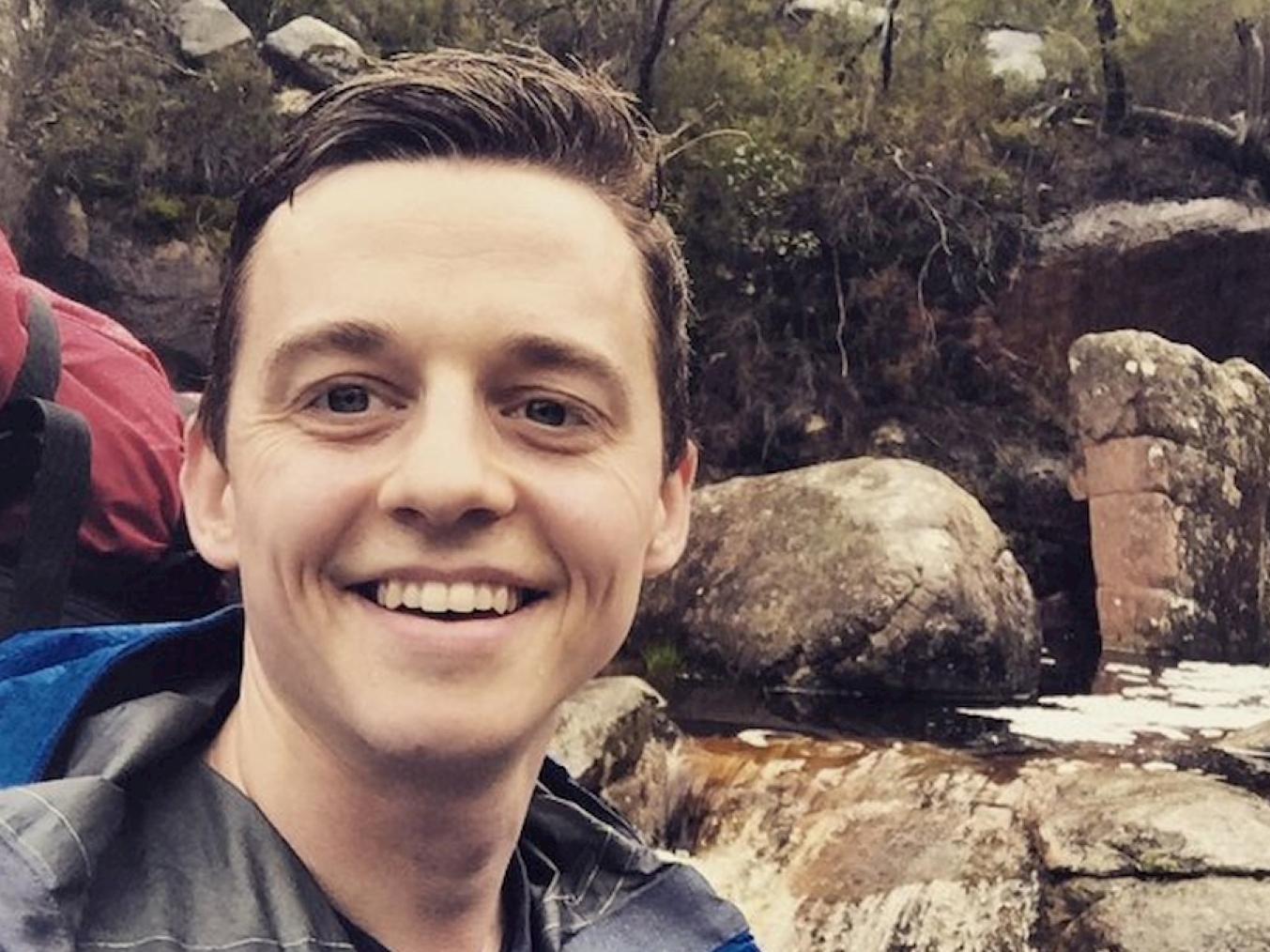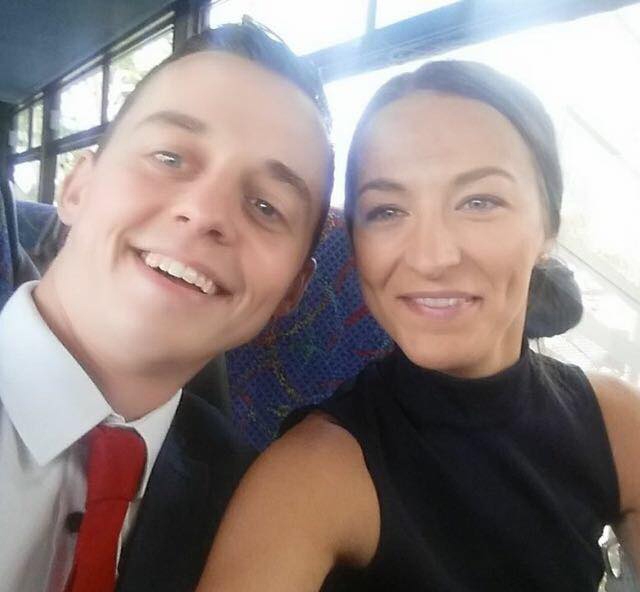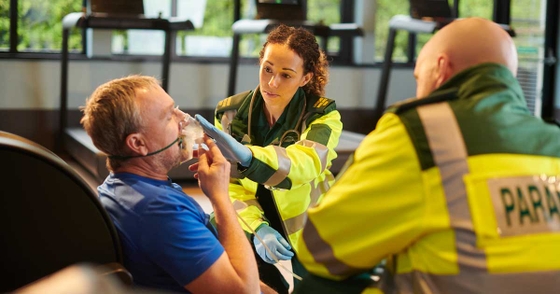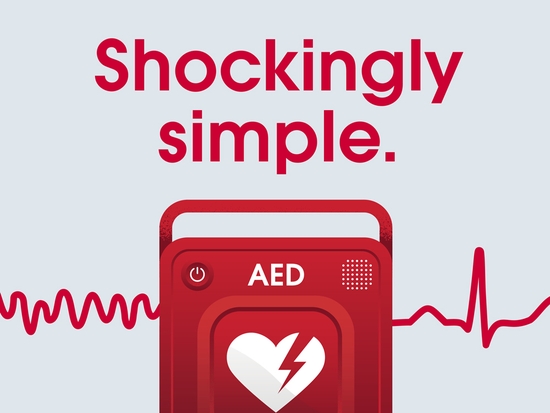
Cardiac arrest at 26: adjusting to a new ‘normal’
Key takeaways
Sudden cardiac arrest can, believe or not, happen to seemingly healthy people. At 26, Tom was the fittest he'd ever been, but a near-fatal cardiac arrest turned his life upside down.
At the age of 26, Tom Pickersgill had never been fitter.
Diagnosed with an enlarged heart as a baby, Tom was later re-diagnosed with ALCAPA Syndrome at 16, a rare congenital heart condition that can be fatal if not corrected. He underwent an open-heart surgery that gave him an extraordinary new lease on life.
After my surgery at 16, I decided to go for a jog and I kept running. I was amazed that I could do it after years of not being able to run at all. The surgery opened me up to a whole new world and I became addicted to it."
Tom Pickersgill
For the next decade, exercise became a big part of Tom’s life, participating in high-stamina sports such as kickboxing, triathlons and extreme rock climbing all over the world.
But on the morning of 11 May 2013, Tom didn’t feel quite right. He had been feeling unwell, like he had the flu, and hadn’t done any exercise.
Even though I didn’t feel well, I hadn’t taken any time off work. I told myself to stop being soft and go for a run.”
That’s all Tom remembers from that day. He woke up five days later in intensive care. He had suffered a near-fatal cardiac arrest.
In an amazing twist of fate, two nurses travelling in opposite directions both saw Tom clutch his chest, fall back and hit his head on the footpath. They immediately ran to his aid, called Triple Zero and alternately performed CPR.
During this time, another car stopped – it contained four employees from NOVA radio station that had recently trained in CPR. All four assisted the nurses and performed CPR on Tom until the ambulance arrived.
The ambulance came within 16 minutes and applied 14 shocks – unable to restore a normal rhythm the officers were about to “call it” but decided to try one more time.
Tom’s heart came back to life.
In hospital Tom was put into an induced coma for three days and his family was given a grim prognosis – he may not wake up, he may not be able to speak or walk again and he may have no short-term memory.
Tom woke after five days and had no immediate memory, but over the course of a week his memory improved. At this time, he had more heart surgery and had an internal defibrillator inserted to shock his heart back into rhythm if it started failing again.
The next six months were a very dark time for Tom.
I bottled everything up. I told everyone I was okay but I wasn’t. I didn’t want my family to worry – I just wanted my old self back.”
Tom had to adjust to a completely new ‘normal’. He had previously been employed as an MRI technician and part-time lecturer – a job he was passionate about. Having an internal defibrillator meant he was no longer able to do the same job.
After a decade of looking after his diet and exercising at very high levels – he lost all motivation. He began drinking and eating unhealthily. In his mind he had done all the right things and his heart had still failed him. What was the use of living a healthy life?
I couldn’t train anymore, and I wasn’t interested in cardiac rehabilitation. In my mind, I thought I knew what I had to do but looking back, cardiac rehab would have been the best thing for me at that time. It is the first thing I would recommend people to do now.”
After a nine month 'bad patch', Tom finally sought help. He saw a GP and a psychologist and talked about his anxiety and depression, and after a few months began to feel that things were going to be okay.
It was great to get things off my chest. I learnt to tell people close to me that I wasn’t okay. To finally communicate that was brilliant. I had to get used to being a different guy.”
Heart disease isn’t like having a cast on your leg or being in a wheelchair. It’s a silent thing. When you are struggling it’s sometimes hard to get across to someone who can never understand. Seeking help and meeting others in a similar situation definitely helped me.
Tom also got serious about his lifestyle again. He made major changes to his diet, improved his sleep, started exercising and continued to receive help for his mental and emotional wellbeing.
Today Tom is in a “good place”. He has a new role as a specialist in cardiac CT and MRI which takes him all around the world.
Tom also says his cardiac arrest is “the best thing that ever happened to me”. He is now happier than ever and has a clearer idea on what the “important things in life are”.
Work-wise, my cardiac arrest has turned into the biggest blessing as now I have a job that is bigger than I ever imagined getting before. Something I enjoy way more.”
He also credits the support and unwavering love of his girlfriend Christina who stuck with him through the very dark times.
After my cardiac arrest I told my girlfriend that she didn’t have to stay around as she didn’t sign on for this. She has been incredible, without her support, understanding and complete patience I don’t think I would have made the recovery I have made.”
And today, what would Tom say to those who are struggling like he was after a heart event or heart surgery?
Don’t bottle things up. Let everyone know how you feel. As soon as you try and go it alone the weight of the problem is so much harder to deal with. It’s an old cliché, but as soon as you share the problem, the problem is halved. Seek advice, get help. There are many people out there who can help you. Getting the right support is huge. You deserve it.”
Looking for more tips and advice on living with a heart condition? Become a member of the Supporting Young Hearts online support group, where people with heart conditions can connect with each other, share stories, and learn more about how to manage their condition. Visit us here to find out more.

Tom also says his cardiac arrest is “the best thing that ever happened to me”. He is now happier than ever and has a clearer idea on what the “important things in life are”.
“Work-wise, my cardiac arrest has turned into the biggest blessing as now I have a job that is bigger than I ever imagined getting before. Something I enjoy way more.”
He also credits the support and unwavering love of his girlfriend Christina who stuck with him through the very dark times.
You might also be interested in...

Heart attack vs cardiac arrest – know the difference
Learn the difference between heart attack and cardiac arrest, their symptoms, survival rates, and prevention tips to help you respond in an emergency.

Shockingly Simple
Learn what an AED is and what you can do during a cardiac arrest.
.jpg?width=560&height=auto&format=pjpg&auto=webp)
Do you have a Heart Story to share?
By sharing your heart story, you can help save lives. You can tell others about the warning signs of a heart attack, the importance of a Heart Health Check, or even what it’s like to live with chronic heart disease.
Last updated09 November 2025
Last reviewed19 December 2023